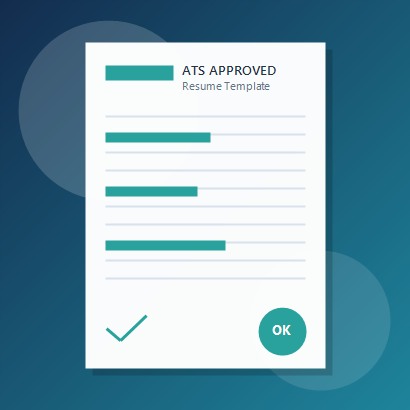Navigating the job market successfully often hinges on how well a resume is tailored to specific job postings. One of the most crucial aspects of this tailoring is keyword optimization. Keywords are the specific terms related to job skills, qualifications, and experiences that hiring managers and applicant tracking systems (ATS) look for in a candidate's resume. This article provides an in-depth look at effective strategies for identifying and incorporating these critical keywords into your resume to enhance your visibility and relevance in the eyes of potential employers.
The Importance of Keywords in Resume Writing
Keywords in a resume help bridge the gap between job descriptions and an applicant's qualifications. They are crucial for passing the ATS: an automated gatekeeper that many companies use to screen resumes before they reach human eyes. Using the right keywords can be the difference between your resume being noticed or being overlooked.
Understanding Keyword Relevance
Before diving into how to optimize your resume with keywords, it's essential to understand what makes a keyword relevant. Relevance in this context means that the terms you include in your resume should closely align with the skills, experiences, and qualifications that the job description emphasizes. These can include specific competencies, technical skills, professional certifications, and even soft skills.
Analyzing Job Descriptions
The first step in keyword optimization is thoroughly analyzing job descriptions of the positions you are interested in. Look for:
- Repeated words: Frequently mentioned terms are likely critical for the role.
- Required skills and qualifications: These are often explicitly listed in a section of the job description.
- Job titles and roles: Sometimes, specific titles can be keywords themselves.
- Tools and technologies: Mention of specific software, tools, or methodologies indicates important keywords.
- Soft skills and attributes: Terms like "team player," "leadership," and "problem-solving" are also valuable keywords.
Using Online Tools and Resources
Several online tools can help identify important keywords:
- Job analysis tools: Websites like Jobscan and others allow you to compare your resume against a job description to see how well it matches up.
- Industry keyword lists: Some websites provide lists of common keywords for various industries, which can be a helpful starting point.
- Professional forums and networks: Industry forums and professional networks like LinkedIn can offer insights into trending keywords and skills within your field.
Incorporating Keywords Strategically
Once you have identified the relevant keywords, the next step is to incorporate them into your resume. Here's how:
- Use them in your professional summary: This section is one of the first things an ATS or recruiter will read. Make sure it is rich with relevant keywords.
- Include them in your skills section: List both hard and soft skills that match the job description.
- Demonstrate them in your work experience: Don't just list the keywords; use them while describing your responsibilities and achievements in previous roles.
- Education and certifications: If job-specific courses or certifications are mentioned as desirable or required, list them if you have them.
Avoiding Overstuffing
While it's important to include relevant keywords, "keyword stuffing" (the practice of shoehorning as many keywords as possible into your resume) can be counterproductive. Not only can it make your resume difficult to read, but sophisticated ATS can also flag it as spam. Ensure that the use of keywords is natural and contextually appropriate.
Keeping Your Resume Updated
The job market and the value of specific keywords can change rapidly. Regular updates to your resume are crucial to ensure that it remains relevant. This includes not only updating your experiences and achievements but also refreshing the keywords based on new trends in your industry.
Step-by-Step Keyword Research Process
Effective keyword optimization requires a systematic approach. Follow this proven process to identify and incorporate the most impactful keywords for your target positions.
Step 1: Gather Multiple Job Descriptions
Collect 5-10 job descriptions for positions you're interested in pursuing. This broader sample helps identify patterns and common requirements across similar roles. Focus on recent postings from companies in your target industry. Save these descriptions in a document for easy reference and comparison.
Step 2: Identify Common Keywords and Phrases
Read through each job description and highlight repeated terms, particularly those appearing in the "Requirements," "Qualifications," and "Responsibilities" sections. Create a spreadsheet listing these keywords with columns for frequency and relevance. Pay special attention to skills, software programs, certifications, industry terminology, and action verbs. Keywords appearing in multiple job descriptions signal high-priority terms for your industry.
Step 3: Categorize Your Keywords
Organize identified keywords into logical categories: hard skills (technical abilities like "Python" or "financial modeling"), soft skills (interpersonal qualities like "communication" or "leadership"), industry-specific terminology (jargon or processes unique to your field), certifications and credentials, and tools and technologies. This categorization helps ensure comprehensive coverage across your resume sections.
Step 4: Match Keywords to Your Experience
Review your categorized keyword list and identify which terms authentically reflect your experience and capabilities. Never fabricate skills, but do consider skills you've used even if not prominently featured in previous resumes. For each matched keyword, identify specific instances where you've applied that skill, including the project, timeframe, and measurable outcomes.
Step 5: Strategic Keyword Placement
Integrate keywords naturally throughout your resume. Place the most critical keywords in your professional summary to immediately capture ATS attention. Include relevant keywords in your dedicated skills section, organized by category or proficiency level. Within work experience descriptions, embed keywords while describing actual responsibilities and achievements. Ensure each keyword appears in context that demonstrates genuine proficiency rather than simple listing.
Step 6: Test and Refine
Use free ATS resume scanners to test how well your resume matches target job descriptions. These tools provide match percentages and highlight missing keywords. Review the feedback and adjust your resume accordingly, adding missing critical keywords where you genuinely possess those skills. Retest after modifications to measure improvement.
Examples: Good vs. Bad Keyword Usage
Understanding the difference between effective and ineffective keyword integration is crucial for ATS success and human reader engagement.
Example 1: Skills Section
Bad: "Skills: Microsoft Office, communication, team player, hard worker, detail-oriented, problem-solving"
Good: "Technical Skills: Microsoft Excel (Advanced - VLOOKUP, Pivot Tables, Macros), Microsoft PowerPoint, Salesforce CRM, Google Analytics
Professional Skills: Project Management, Data Analysis, Cross-Functional Team Leadership, Client Relationship Management"
Why it's better: The improved version specifies proficiency levels, provides context for technical skills, eliminates vague buzzwords, and organizes skills into meaningful categories.
Example 2: Work Experience Description
Bad: "Used Python and SQL for data analysis projects. Good communication skills helped me work with different teams."
Good: "Utilized Python and SQL to analyze customer behavior data sets exceeding 500,000 records, identifying trends that informed marketing strategy. Collaborated with cross-functional teams including Marketing, Sales, and Product Development to present actionable insights through Tableau dashboards, resulting in 15% improvement in customer retention."
Why it's better: This version quantifies the scope of work, demonstrates keyword integration (Python, SQL, Tableau), shows collaboration context, and provides measurable outcomes.
Example 3: Professional Summary
Bad: "Results-driven professional seeking opportunities to leverage my skills. Team player with excellent communication abilities and proven track record of success."
Good: "Digital Marketing Specialist with 5+ years of experience driving customer acquisition through SEO, PPC, and content marketing strategies. Expertise in Google Analytics, Google Ads, and HubSpot. Proven track record of increasing organic traffic by 200% and improving conversion rates by 35% through data-driven campaign optimization."
Why it's better: The enhanced summary includes specific marketing keywords (SEO, PPC, Google Analytics), quantifies experience, eliminates generic buzzwords, and provides concrete achievement metrics.
Frequently Asked Questions
How many times should I repeat a keyword in my resume?
Include important keywords 2-3 times throughout different sections when natural and authentic. Once in the skills section, once in the professional summary, and once in relevant work experience creates sufficient keyword density without appearing stuffed.
Should I include keywords even if I don't have strong experience with them?
No. Only include keywords representing skills you genuinely possess and can discuss competently in an interview. Misrepresenting your abilities will become apparent during the interview process and damage your credibility.
What if the job description uses acronyms for certain skills?
Include both the acronym and the full term when space permits. For example, "Search Engine Optimization (SEO)" or "Applicant Tracking System (ATS)." This covers both variations an ATS might search for.
How do I find keywords for career changes when I lack direct experience?
Focus on transferable skills that apply to your target role. Research the new field extensively to understand terminology and emphasize relevant projects, volunteer work, or coursework that demonstrates applicable competencies.
Conclusion
Keyword optimization is a vital skill in modern resume writing, acting as a bridge between job descriptions and your professional experience. By strategically identifying and incorporating relevant keywords, you enhance your visibility to both ATS and potential employers, significantly boosting your chances of landing an interview. At Resume Optimizer Pro, we specialize in extracting relevant skills and keywords from job descriptions or titles. We enable you to choose which ones best apply to you and seamlessly integrate them into your resume for better job matching, ensuring your application stands out in a crowded job market.
Final Thoughts
The art of resume writing continues to evolve, and staying updated with the best practices in keyword optimization is essential for any job seeker.
By carefully selecting and incorporating the right keywords, you not only tailor your resume more effectively to each job but also improve your overall marketability as a candidate.
Related Articles

Download an ATS friendly resume template engineered for real parser behavior. Includes a copy-paste structure, ATS-safe ...
Read More

Choose the perfect resume fonts and styles that pass ATS screening every time. Discover which fonts recruiters prefer, f...
Read More

Build a winning resume that gets results. Learn the essential components every great resume needs including format selec...
Read More



